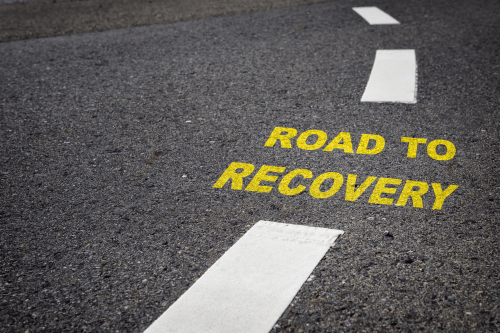

What is dual diagnosis recovery is a question asked by many patients who struggle with both mental health disorders and substance abuse problems. Dual diagnosis recovery means treating a mental disorder such as anxiety, depression, or bipolar disorder at the same time as addressing addiction. At Sullivan Recovery in Mission Viejo, our outpatient rehab programs focus on mental health treatment, therapy, and sobriety for long-term health.
Dual diagnosis occurs when a patient faces both a mental disorder and a substance abuse problem. This combination is also called comorbidity, and it requires specialized mental health treatment. Without addressing both the addiction and psychiatric disorder together, the risk of relapse becomes higher.
Health professionals use therapy, medication, and peer support to help patients stabilize. A mental health professional may focus on psychiatry to manage symptoms of anxiety, depression, or thought disorder while also treating substance addiction.
Mental health plays a major role in recovery. Patients with anxiety disorder, major depressive disorder, or bipolar disorder often turn to substances like alcohol, methamphetamine, or opioids as a way to cope. This behavior increases the risk of addiction and relapse.
A patient in dual diagnosis recovery learns how to manage stress without turning to substance use. Therapy, coping strategies, and support from a physician or psychiatrist build a healthier lifestyle and lasting sobriety.
.

Mental disorders frequently seen in dual diagnosis recovery include major depressive disorder, anxiety disorder, bipolar disorder, and schizophrenia. These conditions can disrupt sleep, increase irritability, and interfere with daily behavior.
Borderline personality disorder and other personality disorders are also common in patients with substance abuse problems. When these psychiatric conditions go untreated, the patient faces a higher risk of relapse.
Therapy is central to dual diagnosis recovery. Patients take part in evidence-based methods such as dialectical behavior therapy, cognitive behavioral therapy, and group counseling. These therapy options teach coping skills that reduce stress and prevent relapse.
Peer support groups provide accountability and help patients understand they are not alone. Therapy also helps patients change negative behavior patterns linked to addiction and abuse.
Psychiatry provides medical support for dual diagnosis patients. A physician or psychiatrist may prescribe medication to treat mood disorder, anxiety, or psychosis while also considering the risks of addiction.
For example, medication for bipolar disorder or major depressive disorder helps stabilize mood and reduce symptoms. At the same time, the mental health professional ensures that treatment supports sobriety.
Schizophrenia and psychosis are psychiatric conditions that often appear in dual diagnosis cases. Patients may struggle with hallucinations, delusions, or thought disorder symptoms that disrupt health and behavior.
Treatment may include medication and therapy. A health professional works with the patient to ensure psychiatric stability while also addressing substance abuse problems.
Anxiety and depression are two of the most common mental health conditions in dual diagnosis recovery. Anxiety disorder may cause stress, irritability, and sleep difficulties. Major depressive disorder often brings feelings of hopelessness, fatigue, and social withdrawal.
Therapy and medication help patients manage these symptoms. Dialectical behavior therapy and peer support encourage coping skills that reduce relapse risk.

Bipolar disorder and other mood disorder conditions create extreme shifts in energy, mood, and behavior. When paired with substance abuse, the challenges become greater. Many patients use drugs, alcohol, or opioids to self-medicate their symptoms, which increases the risk of addiction and relapse.
Mental health treatment includes therapy, medication, and structured rehab programs that address both psychiatric symptoms and substance use. With the guidance of a mental health professional, patients can manage irritability, stabilize their behavior, and work toward sobriety. Ongoing psychiatry, peer support, and coping strategies help reduce stress while strengthening long-term health.
Borderline personality disorder and other personality disorders often co-occur with substance abuse, creating added challenges in dual diagnosis recovery. Patients may struggle with emotional regulation, risky behavior, anxiety, and unstable relationships that interfere with health and stability. This comorbidity makes treatment from a qualified mental health professional essential.
Dialectical behavior therapy is especially effective for borderline personality disorder, teaching coping methods for stress and emotional intensity. Research shows that DBT reduces psychiatric symptoms while improving mental health treatment outcomes. By combining therapy, medication, and peer support, patients can maintain sobriety and improve long-term recovery.
Coping skills are vital in dual diagnosis recovery and play a key role in relapse prevention. Patients learn how to manage stress, anxiety disorder symptoms, and irritability without turning to methamphetamine, alcohol, or opioids. Therapy helps patients replace destructive behavior with healthier coping strategies that promote stability.
Peer support groups also encourage accountability, helping patients stay connected during recovery. With practice, coping skills improve sleep, reduce psychiatric distress, and support overall health. At Sullivan Recovery, outpatient rehab focuses on teaching coping strategies that build resilience and support sobriety.
Rehab programs provide structure for patients facing dual diagnosis, blending therapy, psychiatry, and peer support in a supportive environment. Patients receive individualized treatment for both substance abuse problems and psychiatric conditions such as anxiety or schizophrenia. This comprehensive approach addresses comorbidity and reduces relapse risk.
Outpatient rehab at Sullivan Recovery allows patients to balance treatment with work, school, and family responsibilities. Health professionals, including therapists and physicians, track progress and adjust treatment plans as needed. With consistent therapy and mental health treatment, patients strengthen coping skills and maintain sobriety.

Comorbidity makes recovery more complex, especially when patients face both substance abuse and mental disorders. For example, untreated major depressive disorder may push a patient toward substance use, while opioid or methamphetamine abuse can worsen psychiatric symptoms like psychosis or thought disorder. This cycle increases relapse risk if not properly addressed.
Dual diagnosis recovery ensures that both conditions are treated together with therapy, psychiatry, and medication. Health professionals provide psychiatric care that manages anxiety, stress, and behavior while reducing addiction triggers. This integrated approach improves health outcomes and supports long-term sobriety.
A health professional such as a psychiatrist, therapist, or physician is central to dual diagnosis recovery. Patients may need psychiatric evaluation for conditions like bipolar disorder, schizophrenia, or borderline personality disorder, while also receiving support for addiction. Each patient’s treatment plan is individualized to address unique risks and symptoms.
Medication management, therapy, and psychiatric monitoring work together to stabilize mental health and prevent relapse. At Sullivan Recovery, health professionals use evidence-based research and therapy methods, including dialectical behavior therapy, to help patients build coping skills. Rehab programs ensure that treatment addresses both mental health and addiction challenges.
Peer support is an important part of recovery. Group sessions connect patients with others facing similar struggles with addiction, depression, or anxiety. This support reduces isolation and provides motivation to continue treatment.
Peer support also reinforces coping skills and helps patients stay accountable. In dual diagnosis recovery, community support makes long-term sobriety more achievable.

Substance abuse problems often increase risky behavior. Patients may misuse opioids, methamphetamine, or alcohol to cope with stress or mental health symptoms. Over time, this worsens psychiatric disorders and increases relapse risk.
Rehab programs focus on breaking the cycle of substance abuse and risky behavior. Patients learn healthier ways of coping through therapy and structured routines.
Many patients with dual diagnosis struggle with sleep problems, stress, and irritability. These symptoms worsen both addiction and mental health conditions. Sleep disturbances are common in anxiety disorder, major depressive disorder, and bipolar disorder.
Therapy and medication help improve sleep and reduce stress. Coping strategies also provide tools for managing irritability without turning to substances.
Research in psychiatry and therapy continues to improve dual diagnosis treatment. Studies on dialectical behavior therapy, medication management, and integrated rehab programs provide better outcomes for patients. Research also highlights the importance of treating comorbidity to reduce relapse risk.
At Sullivan Recovery, evidence-based research guides mental health treatment. Patients benefit from the most effective therapies and medication strategies available today.
Addiction is a chronic disease, but sobriety is possible with proper treatment. Dual diagnosis recovery focuses on both psychiatric stability and addiction recovery. Patients gain skills for long-term coping, relapse prevention, and overall health.
By working with health professionals, therapy groups, and peer support, patients can achieve lasting sobriety. Sullivan Recovery provides outpatient rehab that focuses on mental health treatment, addiction care, and building healthy behaviors.
So, what is dual diagnosis recovery? It is the process of treating both a mental disorder and a substance abuse problem at the same time. With therapy, psychiatry, medication, and rehab, patients can achieve stability and sobriety.
At Sullivan Recovery in Mission Viejo, we specialize in dual diagnosis treatment. Our programs combine mental health treatment, peer support, and addiction care so each patient receives the help they need. Dual diagnosis recovery offers a path to better health, stronger coping skills, and lasting sobriety.
At Sullivan Recovery, as an in-network provider we work with most insurance plans, such as:
And More
If you or a loved one are struggling with mental health challenges or substance abuse, reach out to Sullivan Recovery today. Our team of compassionate professionals is here to support your journey towards lasting well-being. Give us a call at 949-836-7180.
The length of dual diagnosis recovery depends on the severity of both the mental disorder and the substance abuse problem. Some patients benefit from several months of outpatient rehab, while others may need long-term therapy, psychiatry, and peer support. Recovery is an ongoing process rather than a fixed timeline
Yes. Mental health professionals, including psychiatrists and physicians, often use medication as part of treatment for conditions like anxiety, bipolar disorder, or schizophrenia. Medication management is closely monitored to ensure it supports sobriety while stabilizing psychiatric symptoms.
Family involvement is often a key factor in success. Family therapy and education help loved ones understand mental health disorders, addiction, and relapse risk. Support from family can improve coping strategies and strengthen long-term recovery.
Outpatient rehab can be highly effective for patients with dual diagnosis, especially when combined with therapy, psychiatry, and peer support. It allows patients to continue work, school, and family responsibilities while receiving structured treatment. Programs like Sullivan Recovery in Mission Viejo provide evidence-based care for both conditions in an outpatient setting.